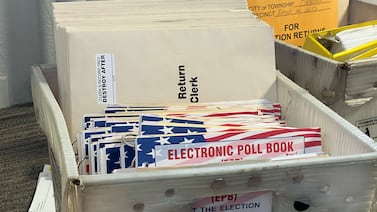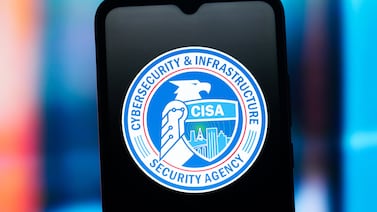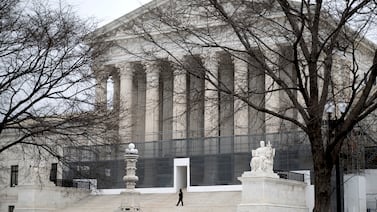This article was originally published in Arizona Mirror.
Votes will be counted for an open primaries ballot initiative that has been the subject of whiplash-inducing court challenge, the Arizona Supreme Court ruled just 31 days before the election.
The high court ruled on Friday, affirming the Sept. 19 decision of a trial court that backers of Proposition 140 had gathered enough signatures to put the measure on the ballot, and that even if they hadn’t, the court could not legally order election officials to disregard votes for it.
The ballot measure, known as the Make Arizona Elections Fair Act, would allow all registered voters to choose from all the candidates in the primary, regardless of their party affiliation, and the top vote-getters would advance to the general election, even if they don’t represent different parties.
The goal of the campaign is to eliminate extreme partisan influence in elections.
Opponents of the measure, including the Arizona Free Enterprise Club, challenged it in court, claiming that the campaign had gathered too many duplicate signatures, putting it beneath the threshold to make it on the ballot.
Maricopa County Superior Court Judge Frank Moskowitz initially declined to hear evidence about the duplicated signatures, but the Arizona Supreme Court overturned that decision and told Moskowitz to reopen the case and consider the evidence — just one day before the ballot printing deadline.
In the same order, the high court told Moskowitz that, if he found enough of the signatures invalid to disqualify the measure, he should order election officials not to count votes for it, since ballots with the proposition on them had already been printed.
But after pushback from the Make Elections Fair campaign and Secretary of State Adrian Fontes, who argued that doing so would disenfranchise voters, the high court took back that direction and said it would allow arguments about the issue to the lower court.
Moskowitz and the trial court then evaluated the nearly 40,000 challenged signatures, finding that nearly all of them were duplicates.
But Moskowitz ultimately ruled that the measure still had enough valid signatures to qualify for the ballot and, even if it had fallen short, there was no constitutional way to ignore votes for or against it.
The judge said the opponents of Prop. 140 could prevail only if some of the signatures they submitted as evidence were counted — and declared invalid — twice, since some of the signatures had already been invalidated by county elections officials.
Chuck Coughlin, the political consultant running the Prop. 140 campaign, celebrated the news on Friday.
“We’re thrilled,” Coughlin told the Mirror. “We’re finally free from the courts and have the ability to free Arizonans from partisan primaries and put elections back in the hands of the voters.”
Prop. 140’s opponents take issue with its allowance of ranked choice voting in general elections, wherein voters rank their choices if there are multiple candidates they like running for the same office. But the measure only allows for the possibility of ranked choice voting in the general election, giving the Arizona Legislature the final say on what those elections would look like.
“We are disappointed in the ruling of the court on this matter,” Scot Mussi, president of the Arizona Free Enterprise Club, said in a written statement. “Our organization proved that the special interest groups attempting to hijack Arizona’s elections systems lacked the minimum number to qualify for the ballot to even be considered by voters in November.”
Mussi accused the campaign behind the Make Elections Fair Act of knowing about the duplicate signatures and obstructing and delaying their review.
Arizona Mirror is part of States Newsroom, a nonprofit news network supported by grants and a coalition of donors as a 501c(3) public charity. Arizona Mirror maintains editorial independence. Contact Editor Jim Small for questions. Follow Arizona Mirror on Facebook and on X.





